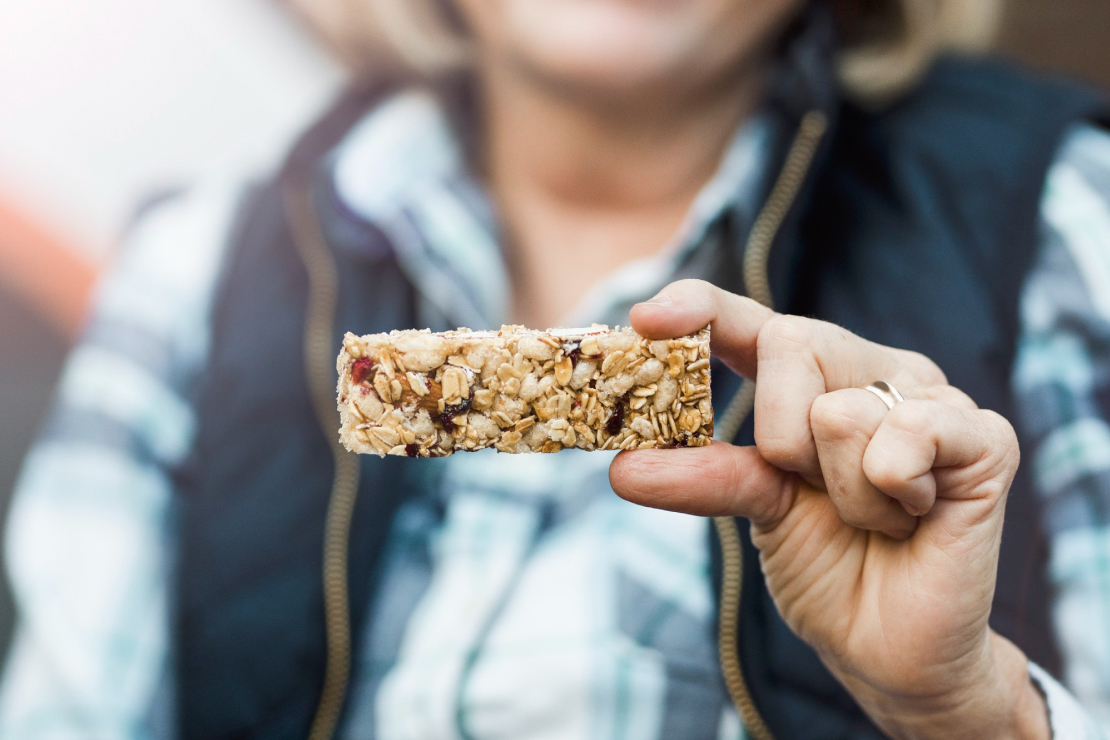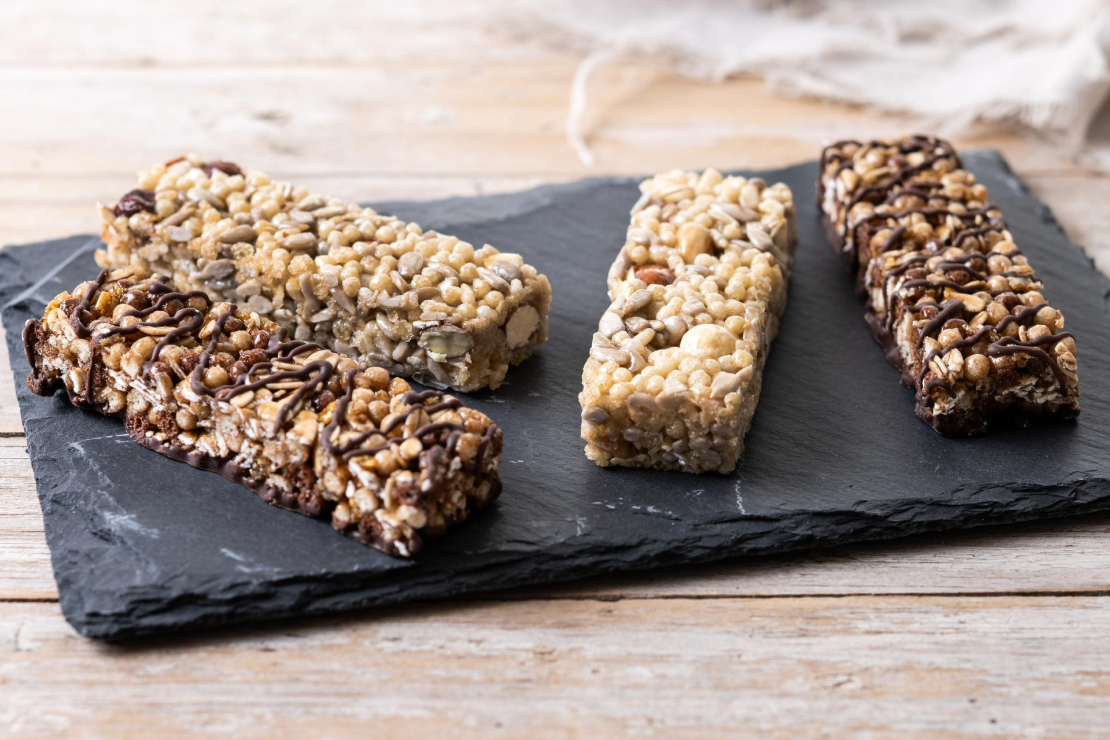Are Protein Bars Actually Healthy? What to Look For
Discover the truth about protein bars, their nutritional value, and how to choose the healthiest options. Learn what ingredients to avoid and when to include them in your diet.

Table of Content
Understanding Protein Bars: Beyond the Wrapper
In today's fast-paced world, protein bars have become a convenient go-to snack for fitness enthusiasts and busy professionals alike. But beneath their protein-packed promises lies a complex nutritional story that deserves closer examination. This comprehensive guide will help you navigate the world of protein bars and make informed choices for your health goals.
Nutritional Profile: What's Really in Your Protein Bar?
Let's break down the typical components of protein bars and understand their impact on your health:
| Component | Average Range | Ideal Range | Impact on Health |
|---|---|---|---|
| Protein | 10-30g | 15-20g | Muscle recovery, satiety
Quality varies by source |
| Carbohydrates | 25-45g | 15-25g | Energy, fiber content
Watch for added sugars |
| Fats | 5-15g | 7-12g | Satiety, nutrient absorption
Prefer healthy sources |
| Fiber | 1-12g | 3-5g | Digestion, fullness
Natural vs. added fiber |
| Sugar | 1-25g | less than 5g | Blood sugar impact
Natural vs. added sugars |
| Calories | 180-300 | 200-250 | Energy balance
Meal replacement vs. snack |
Types of Protein Sources in Bars
The source and quality of protein in your bar can significantly impact its nutritional value and digestibility. Different protein sources offer unique benefits and potential drawbacks, making it essential to choose one that aligns with your dietary needs and fitness goals. Understanding these differences can help you make more informed choices when selecting protein bars.
1. Whey Protein
Whey protein, derived from milk, is one of the most popular and well-researched protein sources. It's particularly valued for its rapid absorption and complete amino acid profile, making it an excellent choice for muscle recovery and growth.
- Complete amino acid profile
High in essential BCAAs for muscle synthesis
- Fast absorption rate
Peaks in bloodstream within 60-90 minutes
- High biological value
90-100% protein utilization by body
- Rich in leucine
Key amino acid for muscle protein synthesis
- May cause digestive issues
Common in those with lactose sensitivity
- Types available
Concentrate, isolate, and hydrolysate forms
2. Plant-Based Proteins
Plant-based proteins have gained popularity due to their sustainability and allergen-friendly nature. While individual sources may have limitations, combining different plant proteins can create a complete amino acid profile comparable to animal sources.
- Soy Protein
Complete protein, contains all essential amino acidsMay affect hormone levels in some individualsHigh in iron and calcium
- Pea Protein
High in iron and branched-chain amino acidsExcellent digestibility score of 94%Low in methionine - often combined with rice protein
- Rice Protein
Hypoallergenic and gentle on digestionLower leucine content than wheyOften combined with pea protein for balance
- Hemp Protein
Rich in omega-3s and fiberContains all 20 amino acidsNatural anti-inflammatory properties
- Mixed Plant Proteins
Combines multiple sources for complete profileBetter amino acid balance than single sources
3. Egg White Protein
Egg white protein is often considered the gold standard for protein quality, offering an excellent balance of essential amino acids and high bioavailability. It's particularly valuable for those who can't tolerate dairy but want an animal-based protein source.
- High biological value
100% reference protein for measurementComplete amino acid profile
- Low in fat and carbs
Ideal for lean protein needsTypically less than 1g fat per serving
- Medium absorption rate
2-3 hours for complete digestionSustained amino acid release
- Allergen consideration
Common allergen for some individualsCross-reactivity with other allergens
- Thermostability
Maintains structure in bakingGood for protein bar manufacturing
Red Flags: Ingredients to Avoid
When selecting protein bars, it's crucial to be aware of potentially harmful or unnecessary ingredients. Many commercial protein bars contain additives that can negatively impact your health or interfere with the nutritional benefits you're seeking. Understanding these ingredients helps you make better choices and avoid common pitfalls in protein bar selection.
- Sugar Alcohols
Common types: xylitol, maltitol, sorbitolCan cause bloating and digestive distressMay trigger IBS symptoms in sensitive individuals
- Artificial Sweeteners
Aspartame, sucralose, acesulfame-KMay alter gut microbiome compositionPotential negative effects on metabolism
- Palm Oil
High in saturated fatsEnvironmental sustainability concernsOften highly processed form used
- Hydrogenated Oils
Contains harmful trans fatsIncreases inflammation markersLinked to heart disease risk
- Artificial Colors
No nutritional valuePotential behavioral effects in childrenMay cause allergic reactions
- High Fructose Corn Syrup
Rapid blood sugar elevationAssociated with metabolic disordersOften indicates low-quality formulation
- Carrageenan
May cause digestive inflammationUsed as a thickening agentNo nutritional benefits
- Soy Lecithin
Common allergen concernOften from GMO sourcesUsed as an emulsifier
When to Eat Protein Bars
The timing of protein bar consumption can significantly impact their effectiveness and your overall nutritional goals. Strategic timing can enhance workout performance, support recovery, and help maintain steady energy levels throughout the day. However, it's equally important to understand when protein bars might not be the best choice.
Optimal Times
Certain times of day and situations make protein bars particularly beneficial, maximizing their nutritional benefits and convenience factor:
- Post-Workout Recovery
Within 30 minutes after exerciseHelps initiate muscle repair processBest with 3:1 carb to protein ratio
- Meal Replacement
When whole food isn't availableChoose bars with balanced macrosLook for at least 15g protein
- Pre-Workout Energy
1-2 hours before exerciseChoose easily digestible optionsModerate protein and carb content
- Between Meals
3-4 hours between major mealsPrevents energy crashesHelps control appetite
- Travel Nutrition
Portable and convenient optionHelps maintain routine when travelingChoose stable, non-melting varieties
Less Ideal Times
Some situations make protein bars a less optimal choice, either due to reduced effectiveness or potential negative effects on your goals:
- Late Night Snacking
May affect sleep qualityHarder to digest while lying downCan disrupt natural hunger cues
- Regular Meal Replacement
Missing out on whole food benefitsLimited micronutrient varietyMay lead to nutrient deficiencies
- During Intense Exercise
May cause digestive discomfortBlood diverted from digestionRisk of nausea or cramps
- Immediately Before Bed
May disrupt sleep patternsChoose slower-digesting proteins if neededConsider timing dinner better instead
Making Smart Choices: A Buyer's Guide
Use this checklist when selecting protein bars:
- Protein Content
At least 15g from quality sources
- Sugar Content
Less than 5g per bar
- Fiber Content
3-5g for satiety
- Ingredient List
Short, recognizable ingredients
- Calorie Content
200-250 calories for snacks
- Fat Sources
Healthy fats from nuts/seeds
DIY Protein Bars: A Healthier Alternative
Making your own protein bars allows complete control over ingredients and nutrition:
Basic Recipe Template
- Protein Base
Protein powder of choice
- Binding Agent
Nut butter, dates, or honey
- Texture Elements
Nuts, seeds, or oats
- Optional Additions
Cocoa, vanilla, cinnamon
Frequently Asked Questions
Can protein bars help with weight loss?
Protein bars can support weight loss when used strategically:
- High protein content increases satiety
- Controlled portion sizes
- Convenient for meal planning
- Must fit within daily calorie goals
Are protein bars good for building muscle?
- Convenient protein source
- Support muscle recovery
- Quality varies by brand
- Should supplement, not replace whole foods
How often should you eat protein bars?
- 1-2 bars per day maximum
- Use as occasional supplements
- Not a replacement for meals
- Consider individual nutrition needs
Are protein bars good for breakfast?
- Better than skipping breakfast
- Should include other nutrients
- Not ideal as regular breakfast
- Good for occasional busy mornings
"While protein bars can be a convenient source of nutrition, they should be chosen carefully and used strategically as part of a balanced diet. The best protein bar is one that fits your specific nutritional needs and lifestyle while containing quality ingredients."
The Bottom Line
Protein bars can be a valuable addition to a healthy diet when chosen wisely and used appropriately. Focus on bars with quality ingredients, minimal added sugars, and adequate protein content. Remember that while they offer convenience, they should not replace whole foods as your primary source of nutrition. By understanding what makes a protein bar truly healthy and knowing when to include them in your diet, you can make informed choices that support your health and fitness goals.
Start Your Health Journey Today
Download Macro Tracking AI and take control of your nutrition with the power of artificial intelligence.
Download on App Store

